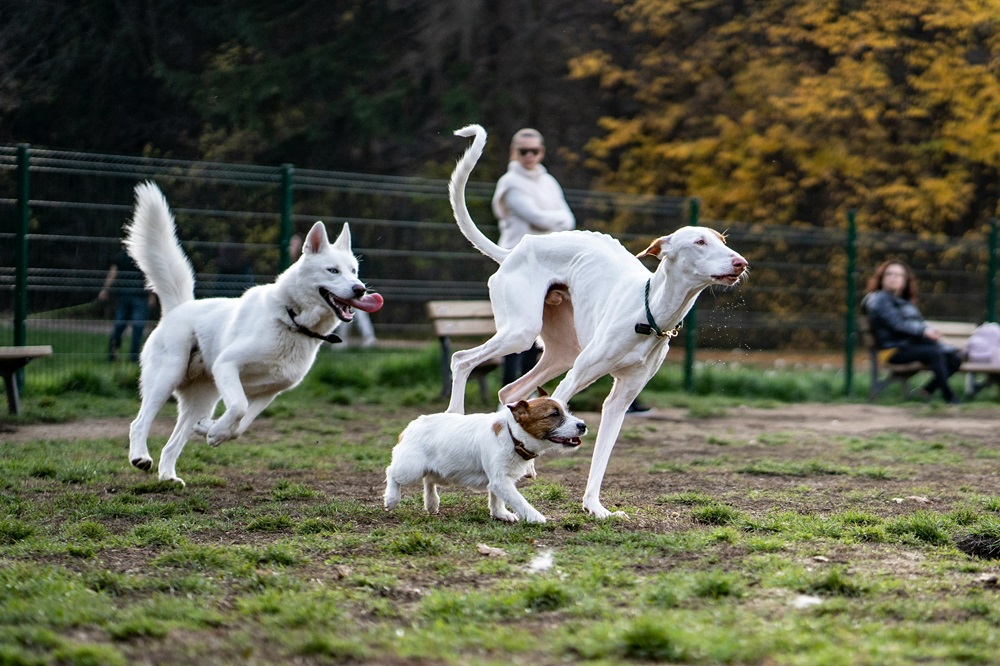“Dog not eating” is an expression that can strike worry into the hearts of pet-loving owners. The moment the most devoted companion appears to refuse food, alarm bells are raised and the search begins to understand why this seemingly unusual behavior has become a reality.
From their general health to their food preferences or environment, there are a variety of factors that can influence a dog’s appetite. In this article, we will explore the depth of this seemingly simple situation and reveal the possible reasons for the dog’s refusal to eat, guiding owners to understand and manage this common challenge in the pet world.
CONTENT:
- Dog not eating because of health problems
- Stress or Anxiety
- Food or Preference Issues
- Dog not eating because of dental problems
- Recent Vaccinations or Medical Treatments
- How to Manage Food Refusal
Worried about your dog not eating but don’t have time to read the full article? Watch this brief video that highlights key reasons dogs might refuse food and practical tips to help. Or, continue reading for an in-depth guide on understanding and managing this common concern.
Dog not eating because of health problems
One of the most common causes of dogs refusing to eat is health problems. From painful dental conditions to gastrointestinal problems or more serious illnesses, your dog may avoid food due to discomfort. It is essential to note any changes in the dog’s behavior and seek veterinary assistance to diagnose and treat any health problems.
-
Gastrointestinal: When the Stomach Is Not a Friend
Gastrointestinal problems are another category of health problems that can affect a dog’s appetite. From minor digestive upsets like indigestion to more serious conditions like gastritis or enteritis, stomach discomfort can cause your dog to refuse food. Noticing symptoms such as vomiting, diarrhea or constipation is crucial for proper diagnosis and treatment.
-
More Serious Ailments: Whisper Warnings
In some cases, the dog may refuse food due to more serious medical conditions. Chronic conditions, systemic diseases or even metabolic disorders can significantly affect the pet’s appetite. Responsible owners should pay attention to subtle signs such as unexplained weight loss, weakness or behavioral changes that could signal more complex medical problems.

Stress or Anxiety
Stress and anxiety can be powerful factors that influence eating behavior in dogs. These emotions can be triggered by various events, such as changes in the environment, relocation, the introduction of a new member to the family, or adjustments in the dog’s daily routine. In these situations, the dog may refuse food, thus signaling that something is troubling him.
-
Reactions to New Environments
Relocation or significant environmental changes can be major stressors for dogs. New smells, sounds and atmosphere can negatively affect their appetite. It is important to be aware of these changes and provide additional support to help them adapt.
-
The Impact of Socialization
Introducing a new member to the family, whether human or another pet, can bring with it social complexities. Dogs, being creatures of routine, can experience stress and anxiety when faced with changes in family dynamics. These emotions can affect their appetite and lead to food refusal.

Food or Preference Issues
Food preferences can vary from dog to dog, and some may refuse food due to changes in diet or the quality of food offered. It may be helpful to adjust the food according to their preferences and ensure that the food provided is fresh and suitable for their nutritional needs.
Dog not eating because of dental problems
One of the common causes of dogs refusing to eat is related to dental problems. From tooth decay to gingivitis, oral discomfort can make eating a painful experience. This subtlety of dental distress can be easily overlooked, but attentive owners will notice any signs of difficult chewing or avoidance of solid food.
Recent Vaccinations or Medical Treatments
Some vaccinations or medical treatments can affect the dog’s appetite for a short time. If you notice that food refusal occurs after a visit to the vet, talk to the vet to find out if this behavior is normal and temporary.
1. Rabies vaccine
One of the common vaccines that can impact a dog’s appetite is the rabies vaccine. It can cause, in some cases, a temporary reaction manifested by decreased appetite and sometimes fatigue.
2. Parvovirus vaccine
The parvovirus vaccine is essential to protect dogs against this serious disease. However, after administration, there may be dogs that show slight indisposition and temporary food refusal.
3. Combo vaccines
Combined vaccines, which cover several diseases at the same time, can have an influence on the general condition of the dog. They may experience a temporary loss of appetite, accompanied by some mild symptoms of fatigue or lethargy.
4. Antiparasitic treatments
Some antiparasitic treatments, such as those for ticks and intestinal worms, can cause temporary side effects, including decreased appetite. It is important to discuss any concerns about such treatments with your veterinarian.

How to Manage Food Refusal
-
Visit the Veterinarian
If the dog refuses food and this change persists, consult your veterinarian for a detailed examination. It is important to rule out health problems that could be underlying their behavior.
-
Provide Quality Food
Make sure the food offered is of high quality and meets the dog’s nutritional needs. Some dogs can be picky about their food, so try to find a variation that they like.
-
Create a Calm Environment
Reducing stress and anxiety can improve your dog’s appetite. Provide them with a warm and safe environment without sudden changes that affect them emotionally.
-
Encourage Exercise
Physical activity can stimulate the appetite. Regular walks and games can help improve overall health and increase interest in food.
-
Variety in Diet
Try to introduce variety into your dog’s diet. Rotating the protein and including fresh food or wet food can make the feed more appealing.
In conclusion, when the dog refuses food, it is important to approach this problem with patience and pay attention to the signals it sends. Consulting the vet and carefully adjusting their environment and diet can help resolve this situation and ensure a healthy and happy life for our canine friend.

